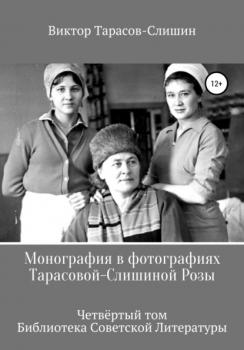MREADZ.COM - много разных книг на любой вкус
Скачивание или чтение онлайн электронных книг.Дети зимы
Вокруг молодой девушки Аси Быстровой неожиданно начинает разворачиваться цепь трагических событий. Сначала ее саму похищает незнакомый мужчина, назвавшийся армейским другом отца, вслед за этим она узнает о том, что в Греции на отдыхе погибли ее родители и младшая сестренка, а в студенческом лагере кто-то убивает ее соседку по палатке, которая заснула в спальном мешке Аси. Девушка оказывается единственной наследницей отцовского бизнеса, и поэтому подвергается большой опасности. Похитивший ее Филипп Орлов становится для Аси телохранителем и другом. С его помощью девушке удается спастись во время последующих покушений, узнать тайну рождения своего отца и обрести младшего брата. Она узнает о предательстве самых близких родственников и убеждается в верности друзей.
Гагенпоппен
Александр.Чащин – основатель направления "Русская крафтовая литература", идейный вдохновитель и альфа проекта "Зосима Тилль". Его проза похожа на крепкий алкоголь: от первого глотка перехватывает дыхание, и только когда основательно вштырит, получаешь острый, на грани обсцена, драйв. Прочитанное только кажется ядрёным анекдотом. Тебя раздели не для того, чтобы завалить. Ты, как коронованная нечистью Маргарита, принимаешь бал человеческих страстей. Ради чего всё это? Конечно, во имя Мастера. Усталого и до времени постаревшего человека с печальными глазами, который, кажется, умеет любить В.Травская Содержит нецензурную брань.
Смерть ума, или Цель интеллекта думающего
Иногда действия, кажущиеся великими, а иногда и попросту невозможными – достаточно просты для исполнения. Нужно воплотить всего одного условие: делают это "невозможное" люди из будущего. С их технологиями, знаниями и подготовкой. И это действительно было бы сложно, но все события, в которые нужно вмешаться, уже написаны в одной книге. В книге, с такими необычными вещами, как кристаллизация целого города и огромный корабль из дерева в доисторической эпохе… Почему название проекта такое? Это знают лишь люди из будущего, отославшие указания и чертежи машины времени в прошлое. Сейчас все люди из списка могут лишь догадываться до смысла своих действий. Иногда цель ясна сразу, а иногда появляется лишь при сложении первых букв. Содержит нецензурную брань.
Воскрешение вампира. Книга 7. Часть 2
Дорогой читатель! Мы завершаем последнюю, седьмую по счёту книгу об увлекательных, равно как и пугающих похождениях одинокого вампира в среде добропорядочных англичан. В предыдущих книгах вы уже могли немного заочно познакомиться с этим примечательным персонажем. Принадлежа одновременно к нашему и к потустороннему миру, Варни тяготится своей судьбой и строит различные планы, пытаясь разрушить существующее положение…
Спаситель Иисус
Роман молодой писательницы Иланы Совы – «Спаситель Иисус», о человеке, который исцеляет людей с помощью полученного дара. Иисус, в детстве у Бога просил только одну вещь – зрение. Когда мать оставила его одного в деревенском домике, то ему приснился сон наяву. После него он начинает видеть некие события, которые сбудутся в скором времени. В двенадцать лет он исцеляет самую агрессивную собаку – Марфу и в качестве благодарности она становиться его живым оберегом. В шестнадцать лет, он исцеляет знаменитую актрису. После выздоровления, она выкладывает в социальную сеть историю чуда, произошедшего с ней. Журналисты съезжаются в деревню, чтобы опровергнуть его экстрасенсорные способности. Содержит нецензурную брань.
Настоящая сексвайф
Покорный и исполнительный муж в поясе верности. Секс с кем хочу и когда хочу. Что мне ещё надо? Ничего. У меня всё хорошо. Хорошо, пока моего любовника не пытается прибрать к рукам новенькая сотрудница отдела. Однако я не собираюсь сдаваться. За своего мужчину надо бороться. Правда, тут возникает вопрос – кого из мужчин настоящая сексвайф может считать своим? Продолжение книги «Да, моя Госпожа» и финальная часть трилогии. Содержит нецензурную брань.
Монография в фотографиях. Жизнь Тарасовой-Слишиной Розы. В четырёх томах. Том четвёртый
Виктор Анатольевич Тарасов-Слишин
Фотографический альбом Тарасовой-Слишиной Розы Адамовны (1920-2004) с Родовой лествицей, содержит 1210 штук пронумерованных, семейных фотографий. В том числе, с сохранившейся аннотацией Розы Адамовны. В четырёх томах. Четвёртый том (заключительный), включает 290 фотографий. Начиная с 920-ой и заканчивая 1210-ой фотографией. Книга представляет интерес, для носителей Родовых имён: Тарасовых, Слишиных, Шашко, Шицко, Адамёнок, Улиткиных и Долгатовых. Служит примером оформления родового древа (лествицы) и описания ценных, семейных фотографий и альбомов.
Ярче Звезд
Однажды проснувшись в другом мире, наполненном магией и чудесами, в теле молодой девушки, как две капли воды похожей на нее, Эмма невольно оказывается участницей заговора тайной организации Темный двор, которая ищет способ освободить древнюю ведьму Морейну, заточенную в Башне Порядка. Поэтому у Эммы просто не было иного выбора, как притвориться волшебницей Эмилией Хайвотер и стать частью грандиозного плана по уничтожению Академии. Но оказавшись в Академии, Эмма начинает понимать, что ее появление в этом мире не было случайностью, а окружающие как и сама Академия хранят массу мрачных секретов.
Хранитель лабиринта и пленница белой комнаты
Молодой программист идет работать в научную Лабораторию. Там ему говорят, что за запертой дверью подвала – бесконечная лестница, которая ведет в саму Бездну. А еще говорят, что если уснуть в Лаборатории, то древние Тени придут из темноты за спящим. Поэтому открывать двери – табу. Спать – табу. Даже рассказывать про лестницу – табу. История похожа на байку для новичков, поэтому программист игнорирует предостережение и в один из вечеров засыпает в лаборатории. Вот только проснется он в совершенно другом месте – белой комнате, где встретит прекрасную юную девушку. Кто она: жертва или чудовище? «Хранитель Лабиринта и пленница белой комнаты» – мрачное городское фэнтези, где Тени бродят в лабиринте снов. Хочешь увидеть другие миры?
Пороги
Действие происходит на Северном Кавказе в конце XX века. Зоя и её отец, при попытке вернуться в Россию из разрушенного войной дома, встречаются с ночным дозором. Этой же ночью, к дому подходит отряд боевиков. После ожесточенного боя сын главаря – Расул узнаёт о гибели своего отца. Боевики призывают сына отомстить за его смерть. Оставшийся во время боя с Зоей, Расул влюбляется в неё. После ухода в Россию Зои и ее отца, Расул отказывается от немедленного убийства русского дозорного, случайно выжившего после боя. Он пытается решить для себя вопрос о необходимости продолжении войны. Однако признание дозорного в убийстве отца Расула делает выбор мужчины однозначным. В это время Зоя, потеряв отца, решает вернуться из России в Чечню. Её душа больна и отчаянно ищет берег, к которому можно пристать. Зоя находит единственно возможным не терять веру и продолжать жить.









